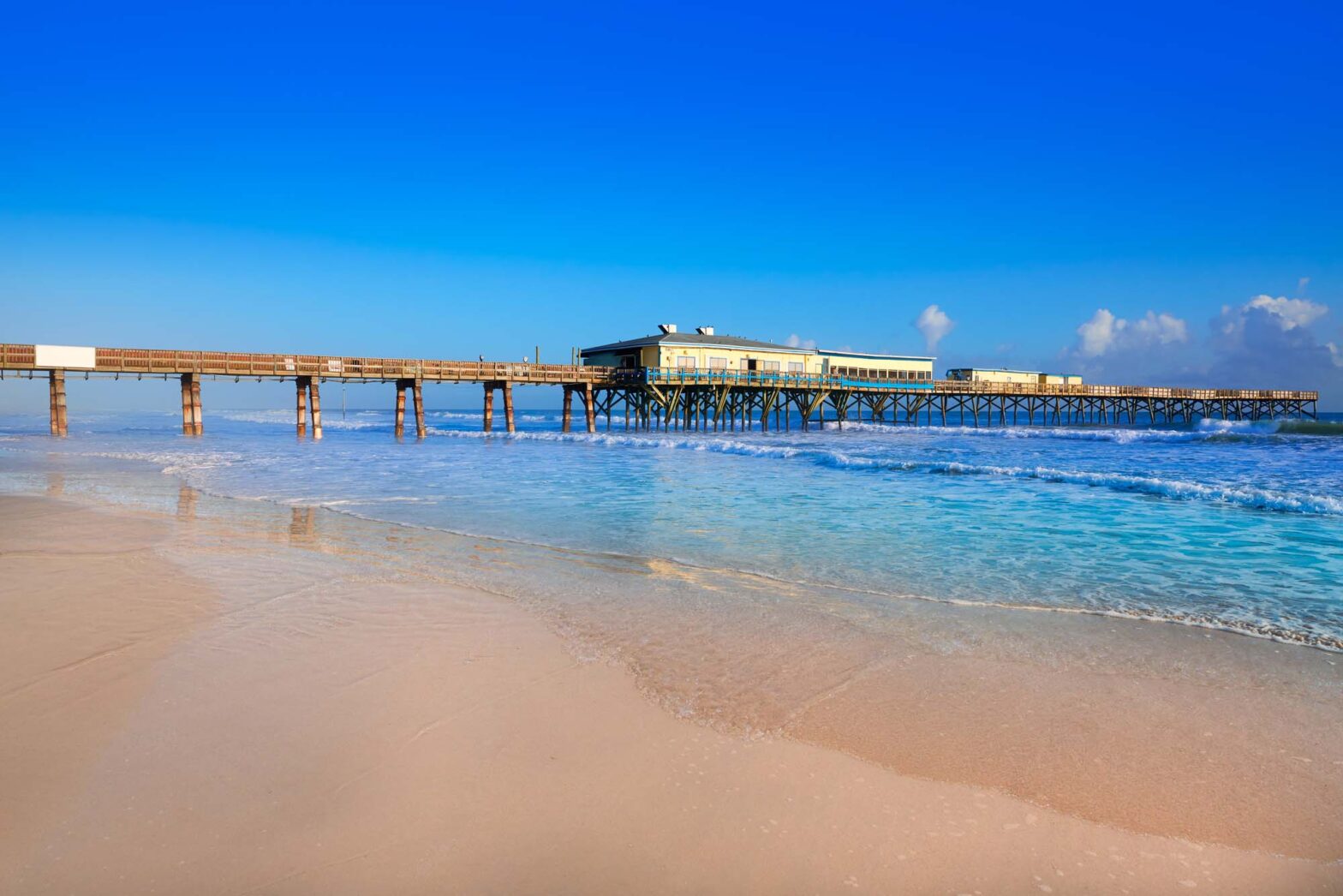Sitting in the soft white sand while you bask in the warm glow of the setting sun, which sinks slowly below the waves while you listen to the gentle crackle of your barbeque… an iconic bucket-list scene you will remember for a lifetime!
Grilling in Daytona beach is allowed, as long you follow some basic rules. The regulations are practical; they include containing the fire to the grill and, when finished, ensuring that you clean up the area to leave no trace that you were there.
The Daytona beach authorities make every effort to ensure that your and all other beachgoer experiences are the best possible.
To keep things simple, they have imposed a few very practical regulations.
Grilling on Daytona Beach
Daytona beach allows grilling as long as you clean up afterward and do not leave a trace when you leave.
The following types of grilling are allowed on the beach:
- Grilling with gas.
- Grilling with charcoal.
- Cooking over a wood bonfire.
Beachgoers who grill must bring their own grilling fuel and properly dispose of it away from the beach when finished. The regulations are:
- Charcoal cannot be disposed of in the beach trash/recycling containers.
- Charcoal may not be left on the sand or, worse, covered by sand.
- Alcohol and glass containers are not allowed.
- Music or noise that you can hear from more than 50 ft from the source is illegal.
- It is illegal to disturb dune vegetation.
Sea Turtles on Daytona Beach
Between May 1 and October 31, a wonderful occurrence happens on Daytona beach when turtles come out of the sea to give birth to their young.
Daytona Beach is the protected home of the loggerhead, green, leatherback, Kemp’s Ridley, and hawksbill turtles during this exciting time. These wonderful creatures must be protected at all times.
If you intend to grill during this season, it means that at all times, you should:
- Not disturb any turtle crawling to or from the ocean or laying eggs. Beachgoers are, however, allowed to observe from a distance.
- At night, beachgoers must not shine lights on the beach as this may frighten away nesting females and interfere with the baby turtles’ ability to find the sea.
- You must avoid walking or cycling in nesting areas.
- You should immediately report any injured or dead sea turtle to the nearest Volusia County Beach Safety employee.
- Don’t disturb markers or protective screening over turtle nests.
- Don’t litter, leaving behind cigarette butts, fishing lines, and other trash can be harmful to the sea creatures, animals, and birds along the beach.
We think you will agree that this is a small price to pay for witnessing this marvel of nature.
Fishing on Daytona Beach
The waters in the Gulf are popular fishing spots, and Daytona Beach is no exception.
Whiting, Pompano, Flounder, Trout, Sheep’s Head, and Drum are the most common catches.
What better way to finish a day of fishing than to celebrate your catch with the family and share a magical time grilling the riches you pulled out of the sea.
Conclusion
Daytona maintains a very friendly and pragmatic approach to beachgoers. They embrace your opportunity to have fun and make new memories, and at the end of the day, relax and grill your succulent meal.
All they ask is that, when finished, you leave the area without a trace that you had been there.

